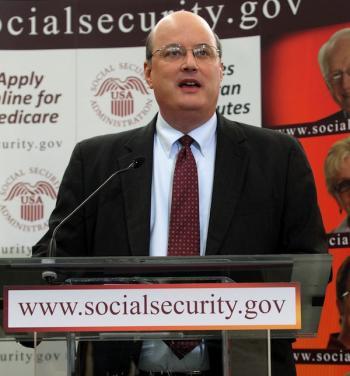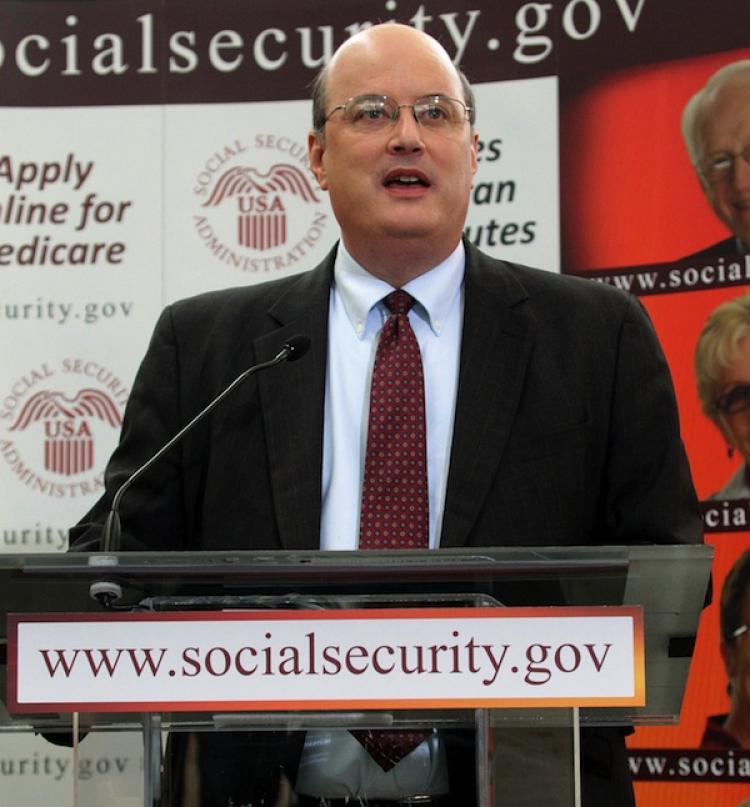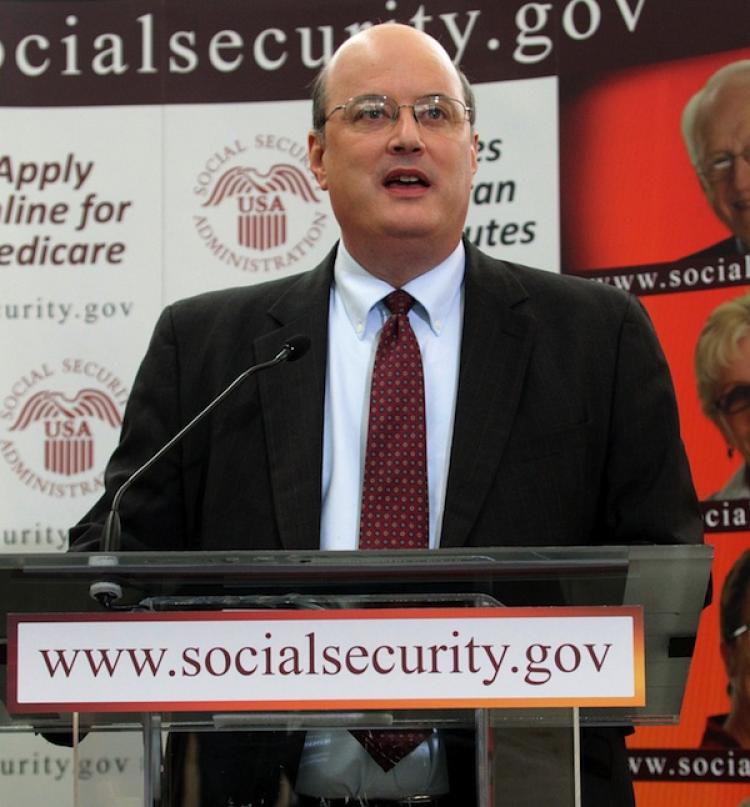WASHINGTON—U.S. retirees face a bleak future, according to numerous studies and not just because of the recent global economic recession.
“Troubled retirement systems around the world face new challenges that may result in sharply reduced income for retirees—as well as the possibility that younger workers will need to work much longer,” predicts Wharton professor Olivia S. Mitchell, according to a study by Knowledge@Wharton (KW), the research and publishing arm of the Wharton School of Business at the University of Pennsylvania.
Mitchell claims that existing government and corporate retirement funding models are out of whack, putting people at risk of poverty after retirement.
“Current and future generations of managers and employees will not be able to use the ‘old fashioned’ model of provisioning for retirement,” Mitchell said.
It is high time to develop a new retirement structure. Regulatory authorities are asked to step up and fill a vacuum to stop corporations, financial institutions, and insurance companies from taking excessive investment risks with retirement funds.
Mitchell doesn’t stop at taking on regulators, but also urges individuals to work at least until the age of 70 or beyond, as life expectancy will be longer than expected.
Clueless about Retirement Benefits
The majority of the American public has no clue regarding how to deal with retirement funding shortages, how much income is needed to have a comfortable retirement, and where the funds should come from.
“Many people are woefully financially ignorant and hence quite unlikely to do a good job even evaluating the potential needs. For another, people too often fail to plan and execute any retirement saving plan at all,” said Mitchell in her report.
Even among those with higher education, only 18 percent of the people surveyed for Mitchell’s study felt comfortable with personal finance.
Pension Plans Underfunded
“The financial crisis reduced the value of equities in state and local defined benefit pensions and hurt the funding status of these plans. The impact will become evident only over time,” according to the recent Center for Retirement Research report “The Funding of State and Local Pensions: 2009–2013.”
Mitchell disagrees and says that pension plans have been vastly underfunded and have deteriorated even more so during the recent financial crisis. Apparently, public sector pension plans—mainly states and municipalities—have only 55 percent of the funds they need to fulfill their obligations.
In June, police and firefighter unions in Baltimore filed a lawsuit claiming that authorities underfunded their pension plans between 2003 and 2008, according to the Plansponsor website.
The American Enterprise Institute (AEI) stated in April that state employee pension funds had more than a $3 trillion shortfall, which was larger than total projected state debts.
In the past, public-sector pension funds afforded more protection than even Social Security, as they are “guaranteed by law, legal precedent, or the state constitution. ... Once earned there is a near-zero probability that benefits will not be paid in full.”
Both New York City and Orange County, California, pension plans pay out full pensions, even when facing financial shortfalls and having to lay off public employees.
In contrast, in the private sector, General Motors Co.’s pension plan is at least $20 billion short on funds.
The Pension Benefit Guaranty Corp., created by the Employee Retirement Income Security Act of 1974, collects insurance premiums from private sector benefit pension plans and will pay retirement benefits to workers if public pension funds dry up.
Government Misuse of Social Security
The U.S. government has been borrowing in the trillions from Social Security funds for years as the American public paid more into the Social Security fund than they collected.
“The government is expected to borrow over $2 trillion from these Social Security trust funds to pay for government spending over the next ten years,” according to a report from the House Oversight Committee.
The Oversight Committee says that the U.S. government has no intention of repaying the borrowed money from the Social Security fund. “Administration officials and Republican congressional leaders have called the trust funds ‘a mere accounting device’ from which employees will get ‘nothing in return.’”
Research by the oversight group found that between 2000 and 2005, when President Bush was in office, the federal government borrowed $500 billion from the Social Security system. Should the government keep borrowing at that rate, it will have borrowed $2.5 billion by 2015.
Government Cash Cow
U.S. officials are using Social Security as a cash cow to pay bills without reimbursing the fund, claim retirement system experts.
Part of the cash U.S. workers pay monthly into Social Security is used to pay monthly retirement checks, while the remainder is placed into the Social Security Trust Fund.
The minute there is some real money in that fund, federal government officials withdraw it and replace it with an “IOU,” represented by a government bond on paper.
The Treasury pays monthly interest, which is immediately withdrawn by officials and replaced with another IOU, perpetuating another cycle of creating a government bond, representing another IOU. Officials claim that the government is rescuing those funds from being invested in private sector securities, keeping the Social Security System alive.
The American Thinker website defines Social Security as a Ponzi scheme because people who pay into the system for the right to receive a retirement income at a later day are paying for those receiving funds now.
Thomas Sowell, an economist and senior fellow at the Hoover Institute at Stanford University, wrote in an article published on a number of websites that the Social Security system is no more than creative accounting or accounting trickery, as funds are lent from one government agency to another. Such funds are not counted as official government debt.
He compares Social Security to what occurred at Enron Corp., with one huge difference.
“Social Security is a much bigger operation than Enron and even more people are depending on it for their retirement money. How much they will be cheated out of depends on how artfully future politicians can manage it.”
“Troubled retirement systems around the world face new challenges that may result in sharply reduced income for retirees—as well as the possibility that younger workers will need to work much longer,” predicts Wharton professor Olivia S. Mitchell, according to a study by Knowledge@Wharton (KW), the research and publishing arm of the Wharton School of Business at the University of Pennsylvania.
Mitchell claims that existing government and corporate retirement funding models are out of whack, putting people at risk of poverty after retirement.
“Current and future generations of managers and employees will not be able to use the ‘old fashioned’ model of provisioning for retirement,” Mitchell said.
It is high time to develop a new retirement structure. Regulatory authorities are asked to step up and fill a vacuum to stop corporations, financial institutions, and insurance companies from taking excessive investment risks with retirement funds.
Mitchell doesn’t stop at taking on regulators, but also urges individuals to work at least until the age of 70 or beyond, as life expectancy will be longer than expected.
Clueless about Retirement Benefits
The majority of the American public has no clue regarding how to deal with retirement funding shortages, how much income is needed to have a comfortable retirement, and where the funds should come from.
“Many people are woefully financially ignorant and hence quite unlikely to do a good job even evaluating the potential needs. For another, people too often fail to plan and execute any retirement saving plan at all,” said Mitchell in her report.
Even among those with higher education, only 18 percent of the people surveyed for Mitchell’s study felt comfortable with personal finance.
Pension Plans Underfunded
“The financial crisis reduced the value of equities in state and local defined benefit pensions and hurt the funding status of these plans. The impact will become evident only over time,” according to the recent Center for Retirement Research report “The Funding of State and Local Pensions: 2009–2013.”
Mitchell disagrees and says that pension plans have been vastly underfunded and have deteriorated even more so during the recent financial crisis. Apparently, public sector pension plans—mainly states and municipalities—have only 55 percent of the funds they need to fulfill their obligations.
In June, police and firefighter unions in Baltimore filed a lawsuit claiming that authorities underfunded their pension plans between 2003 and 2008, according to the Plansponsor website.
The American Enterprise Institute (AEI) stated in April that state employee pension funds had more than a $3 trillion shortfall, which was larger than total projected state debts.
In the past, public-sector pension funds afforded more protection than even Social Security, as they are “guaranteed by law, legal precedent, or the state constitution. ... Once earned there is a near-zero probability that benefits will not be paid in full.”
Both New York City and Orange County, California, pension plans pay out full pensions, even when facing financial shortfalls and having to lay off public employees.
In contrast, in the private sector, General Motors Co.’s pension plan is at least $20 billion short on funds.
The Pension Benefit Guaranty Corp., created by the Employee Retirement Income Security Act of 1974, collects insurance premiums from private sector benefit pension plans and will pay retirement benefits to workers if public pension funds dry up.
Government Misuse of Social Security
The U.S. government has been borrowing in the trillions from Social Security funds for years as the American public paid more into the Social Security fund than they collected.
“The government is expected to borrow over $2 trillion from these Social Security trust funds to pay for government spending over the next ten years,” according to a report from the House Oversight Committee.
The Oversight Committee says that the U.S. government has no intention of repaying the borrowed money from the Social Security fund. “Administration officials and Republican congressional leaders have called the trust funds ‘a mere accounting device’ from which employees will get ‘nothing in return.’”
Research by the oversight group found that between 2000 and 2005, when President Bush was in office, the federal government borrowed $500 billion from the Social Security system. Should the government keep borrowing at that rate, it will have borrowed $2.5 billion by 2015.
Government Cash Cow
U.S. officials are using Social Security as a cash cow to pay bills without reimbursing the fund, claim retirement system experts.
Part of the cash U.S. workers pay monthly into Social Security is used to pay monthly retirement checks, while the remainder is placed into the Social Security Trust Fund.
The minute there is some real money in that fund, federal government officials withdraw it and replace it with an “IOU,” represented by a government bond on paper.
The Treasury pays monthly interest, which is immediately withdrawn by officials and replaced with another IOU, perpetuating another cycle of creating a government bond, representing another IOU. Officials claim that the government is rescuing those funds from being invested in private sector securities, keeping the Social Security System alive.
The American Thinker website defines Social Security as a Ponzi scheme because people who pay into the system for the right to receive a retirement income at a later day are paying for those receiving funds now.
Thomas Sowell, an economist and senior fellow at the Hoover Institute at Stanford University, wrote in an article published on a number of websites that the Social Security system is no more than creative accounting or accounting trickery, as funds are lent from one government agency to another. Such funds are not counted as official government debt.
He compares Social Security to what occurred at Enron Corp., with one huge difference.
“Social Security is a much bigger operation than Enron and even more people are depending on it for their retirement money. How much they will be cheated out of depends on how artfully future politicians can manage it.”






